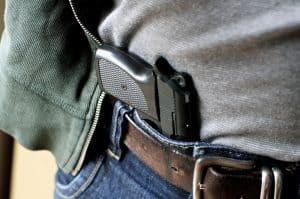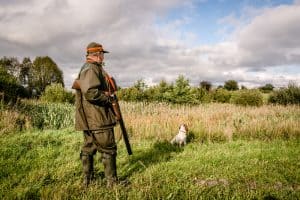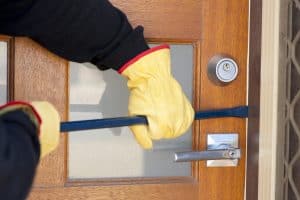
The Pew Research Center reports that just over 40% of adults report there is a gun in their household. While the majority of gun owners are white men, the typical demographics of gun owners are changing. For example, when it comes to gun ownership for seniors, owning a firearm is becoming even more common than it was decades ago. Current estimates report that more than 17 million Americans over the age of 65 own a firearm.
No matter if you currently own a gun or have one in your household, or if you are a family member of an older adult who has a gun in their home, it is important to keep up on general safety tips and to pay attention for any indicators that a firearm could be dangerous.
Reasons for Gun Ownership for Seniors

Hunting is one of the top reasons why older adults own a firearm or have one in the household
Older adults choosing to own a firearm, or have a firearm in the household, do so for reasons consistent with their younger peers. Some common reasons for gun ownership for seniors can include:
- Home safety and protection
- Hunting, sport shooting, or other recreational use
- As a part of a collection
- As a part of their previous or current job
For older adults, home safety, self defense, and recreational use rank at the top of the list and for good reason. Hunting is excellent exercise and provides a time to commune with nature and with family members. Having a way to protect themselves in case of emergency can also be quite empowering for older adults, increasing self esteem and peace of mind.
No matter the reason older adults own a firearm or have one in the household, safety should be the top consideration.
Safety Practices for Senior Gun Ownership
Many gun owners grew up with a gun in their home, and are quite familiar with general firearm safety practices. However, the number of people who own a firearm later in life is increasing, meaning safety is not always a lifelong practiced habit.
Become familiar with your state’s gun laws
Not every state shares the exact same gun laws and regulations. You can find out more about your state’s laws, background check requirements, and licensing by visiting the NRA-ILA’s website. If you or your senior loved one has more than one residence in more than one state, ensure that you are both familiar with laws from each state.
You can also find information about concealed carry laws and guidance on this NRA website. This is especially helpful for retirees who are on the go, traveling from one place to another frequently.
Keep firearms locked appropriately in the home
In all cases, firearms should be locked up in the home. This is not only for the safety of the seniors who live there, but also for visiting grandchildren who might be too curious about grandpa’s gun collection. There are multiple choices of locking solutions on the market, with gun cases being the most popular.

Seniors who own firearms for home protection can feel an increased sense of empowerment or peace of mind
Follow general gun safety guidance
There are five general rules of gun safety that are appropriate no matter how old the firearm operator is:
- Treat every gun as if it were loaded
- Always point the firearm in a safe direction, away from others
- Never point the gun at anything you don’t want to shoot
- Only put your finger on the trigger when you are ready to shoot
- Know what is behind your target
Senior Specific Safety Recommendations
Gun ownership becomes a bit more tricky as the owner ages. Just as family members and physicians often step in to talk about driving privileges as medical conditions make driving less safe, the same might need to happen in regards to having a firearm in the home.
While every senior is different, here are a few indicators that it could be time to re-evaluate having a firearm in the home:
- There is an underlying medical condition that causes a decrease in coordination, such as Parkinson’s Disease
- Decreased vision capabilities
- A diagnosis of Alzheimer’s disease or dementia, or early warning signs of the conditions like confusion, disorganized thinking, or inability to keep up with daily tasks.
Finally, any signs of depression, anxiety, or feelings of social disconnectedness should also be taken quite seriously. Men over the age of 65 are especially prone to increased suicide rates as compared to their younger peers, and nearly 75% of those older men use a firearm.
All that said, removing a firearm from the home can be quite traumatic for older adults. Seniors who see gun ownership as a major part of their identity, especially those who have served in the armed forces or as a police officer, can find parting with a gun to be devastating.
If you are concerned about your aging loved one owning a firearm or having one in the household, begin by talking to your loved one’s physician as well as by sharing your concerns with your loved one if appropriate.
Gun ownership for seniors is generally safe and empowering for most older adults. Some seniors even find a familiarity with gun ownership and activities like hunting, which make up their identity. Just be sure everyone is following good safety guidance and that you communicate any concerns with your older loved one. In case of an emergency, you may want the safety net of a medical alert device. Our Lifeline reviews will give you details on how if there is an unexpected emergency, you can get help fast.


